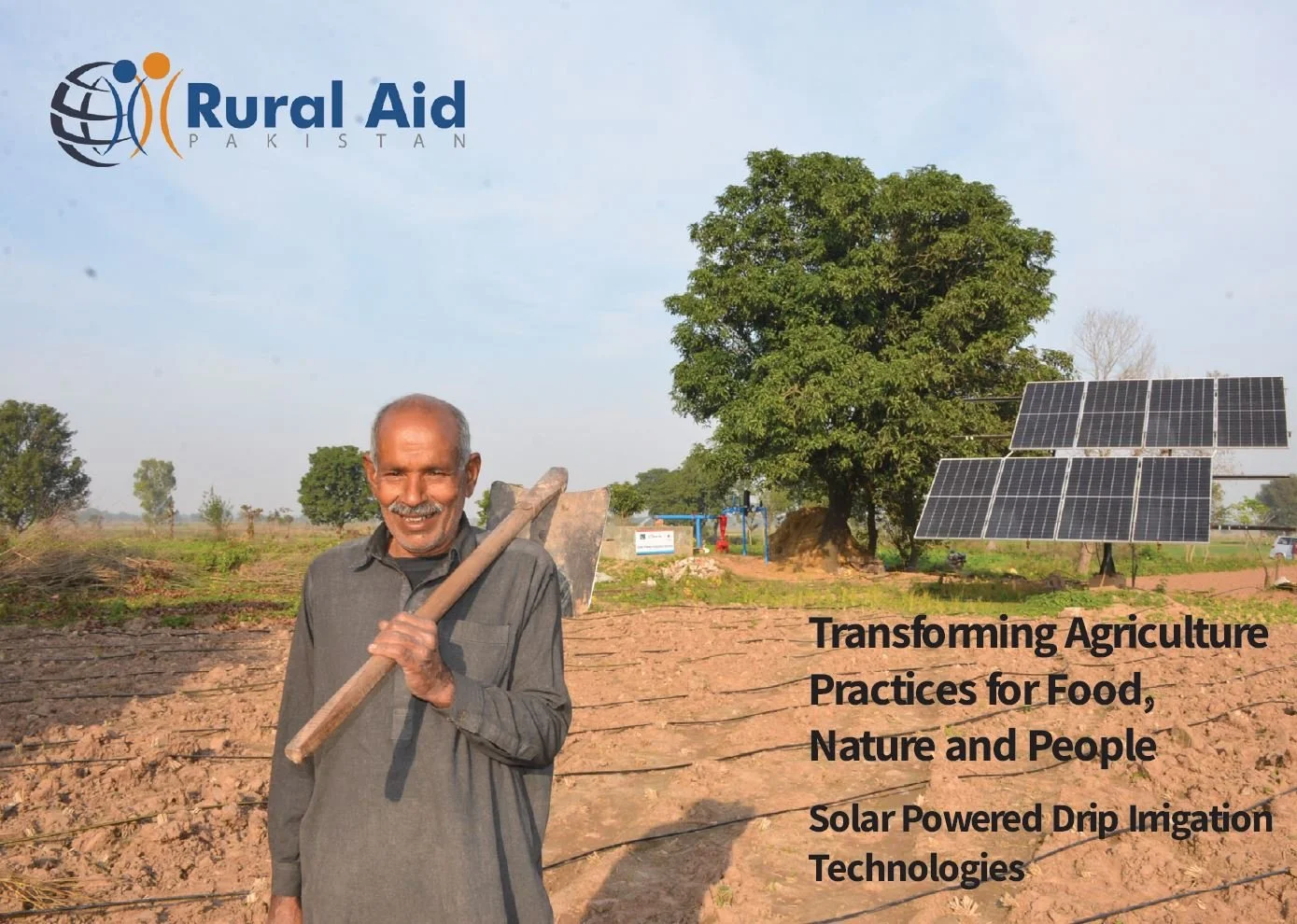Solar-Powered Solutions Transform Lives in Rural Pakistan
In a PKR 18,481,028 ($65,617 USD) initiative transforming life in remote villages of Narowal District, where water scarcity once threatened the livelihood of thousands of farmers, Rural Aid Pakistan, in collaboration with the Government of Japan, has helped turn barren fields into flourishing farmland. Through innovative solar-powered drip irrigation, this project has changed the lives of over 17,000 community members.
Impact at a Glance
224 farmer households benefiting from solar-powered irrigation systems
40-50% increase in crop production
1,280 women trained in kitchen gardening
11,000 fruit trees planted
17 youth trained in green jobs
Over 17,230 community members impacted
From Struggle to Success: Bashir Ahmed's Story
For Bashir Ahmed, a farmer supporting ten children in Bheri Khurd village, traditional farming methods were failing to provide enough for his family. With a monthly income of just 15,000-20,000 PKR ($50-70 USD), meeting basic needs seemed impossible. Like many in his region, Bashir struggled with the challenges of extremely dry land and deep groundwater levels. The high costs of fuel for water pumping made profitable farming nearly impossible for small-scale farmers like him.
Today, Bashir's farm tells a different story. The installation of a solar-powered drip irrigation system has transformed his agricultural practices, leading to a 40-50% increase in crop production. He now grows high-value crops, maintains a thriving livestock operation with two cows, and has even created employment opportunities for four additional workers in his village.
The project's impact extends beyond traditional farming. Khalida Begum and Shazia Bibi, two mothers from Bheri Khurd village, exemplify how the initiative is empowering women. Through collaboration and training in kitchen gardening, they now earn 30,000-45,000 PKR ($110-160 USD) monthly from selling vegetables, allowing them to send their children to school and improve their families' nutrition.
Building Climate Resilience
In a region ranked as the 5th most vulnerable to climate change globally, the project introduces sustainable solutions that help communities adapt while reducing environmental impact:
Solar-powered systems eliminate dependency on fossil fuels
Drip irrigation optimizes water usage
Climate-smart agricultural training builds long-term resilience
Fruit tree plantations enhance food security and environmental protection
Looking Forward
The success in Narowal serves as a model for sustainable agricultural development across Pakistan. Through community ownership, technological innovation, and comprehensive training, the project demonstrates how rural communities can build resilience against climate change while improving livelihoods.
Learn More
Want to dive deeper into this transformative project? Explore our detailed documentation:
Read the Case Studies (PDF) - Five inspiring stories of change from Narowal's farming communities
View the Complete Project Report (PDF) - Comprehensive details about project implementation, outcomes, and future impact
This project was implemented by Rural Aid Pakistan in collaboration with the Government of Japan's Grassroots Human Security Projects (GGP). For more information about our work or to support similar initiatives, please contact us at ruralaid.pk@gmail.com


